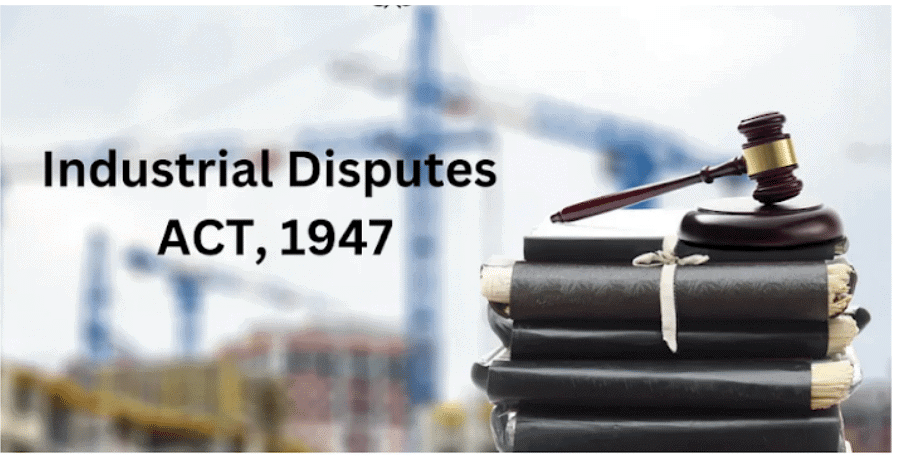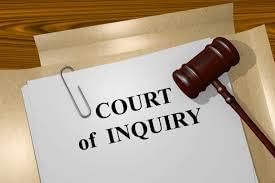Authorities | Business Law - B Com PDF Download
Authorities under the Act

Section 3: Works Board of Trustees
- If there is an incident in any workplace with one hundred or more employees working daily or in the past year, the relevant government may require the business to form a works committee.
- This committee will consist of representatives from both employees and employers. The number of employee representatives must be equal to or greater than that of employer representatives.
- Employee representatives will be chosen in the specified manner from those working at the site, in consultation with their union, if one is registered under the Indian Trade Unions Act.
- The main responsibility of the works committee is to promote measures that ensure good and peaceful relations between employees and employers and to address their shared interests or differences in views on various issues.
Section 4: Conciliation Officer

- The appropriate government may appoint individuals as conciliation officers to help resolve industrial disputes.
- An officer may be assigned to a specific area or industry, either on a permanent or temporary basis.
Section 5: Boards of Conciliation
- When necessary, the appropriate government may issue a notice in the Official Gazette to establish a Board of Conciliation to help resolve an industrial dispute.
- This Board will consist of a chairperson and either two or four other members, depending on what the government deems suitable.
- The chairperson must be an independent individual, while the other members will be appointed in equal numbers to represent each party involved in the dispute. These representatives are to be selected based on recommendations made by the respective parties.
- However, if any party fails to provide a recommendation within the specified time, the government has the authority to appoint suitable individuals to represent that party. The Board can function with the required quorum, even if the chairperson or any member is absent or if there is a vacancy. But if the government informs the Board that the chairperson’s or any member’s services are no longer available, the Board must stop functioning until a replacement is appointed.
Section 6: Courts of Inquiry

- When required, the appropriate Government may, through a notice in the official gazette, establish a Court of Inquiry to investigate any matter that appears to be connected to or relevant to an industrial dispute.
- This Court can consist of either a single independent person or a group of such independent individuals, as the government deems appropriate. If the Court has more than one member, one of them will be appointed as the presiding chairman.
- The Court may proceed with its inquiry and function with the prescribed quorum, even if the chairman or any of its members is absent or if there is a vacancy among its members.
Section 7: Labor Court
- The appropriate government may establish one or more labor courts to resolve industrial disputes regarding any matters specified in the Second Schedule or Third Schedule.
- A labor court will consist of a single individual appointed by the government.
- Only a person who has been a High Court judge, a deputy labor commissioner, or a joint commissioner of the state labor office with a law degree can be appointed as the presiding officer.
Case Examples
- Anand Bazar Patrika v. Their Employees: This case involved Anand Bazar Patrika Pvt. Ltd. and its employees, focusing on an employee named Gupta, whose retirement conditions were challenged. The court ruled that Gupta was still a worker at the time of his retirement, leading to a decision against the company.
- Awaz Prakashan Private Ltd. v. Pramod Kumar Pujari: In this case, Awaz Prakashan claimed to have ceased publication, resulting in the retrenchment of a worker. The worker argued that this action did not comply with the Industrial Disputes Act, 1947.
Section 7-A: Tribunals
- The government may create one or more industrial tribunals for resolving disputes related to matters in the Second Schedule or Third Schedule.
- A tribunal will consist of a single individual appointed by the government.
- Only a former High Court judge, a deputy labor commissioner, or a joint commissioner of the state labor office with a law degree can serve as the presiding officer of a tribunal.
Notable Cases
- Minerva Mills Ltd. Bangalore v. Their Workmen: This case involved disputes between the management of Minerva Mills and its workers, along with other related disputes, which were referred to an industrial tribunal. Only a small number of disputes were addressed during the specified period.
- Lipton Ltd. case: Here, Lipton Ltd., a UK-based company, was involved in disputes regarding its operations in India, which mainly focused on selling packaged tea across the country.
Jurisdiction
The appropriate government may appoint assessors for cases and provide decisions as deemed necessary.
Delay in Filing Appeal
Delays in filing an appeal can weaken a person's case.
Appeal
An appeal can be made to a labor court, district court, tribunal, or national tribunal.
Section 7-B: National Councils
The Central Government may, through a notification in the official gazette, establish one or more National Industrial Tribunals to resolve industrial disputes that, in its opinion, involve issues of national importance or affect industrial establishments located in more than one state.
- Each National Tribunal will consist of a single person appointed by the Central Government.
- A person is eligible to be appointed as the presiding officer of a National Tribunal only if they are or have been a judge of a High Court.
- Additionally, the Central Government may, if deemed appropriate, appoint two individuals as assessors to assist the National Tribunal during its proceedings.
Section 7-C: Disqualifications for Managing Positions
No person shall be appointed to, or continue to hold the office of the presiding officer of a Labour Court, Tribunal, or National Tribunal if:
- They are not an independent individual, and
- They have attained the age of 65 years.
|
30 videos|99 docs|17 tests
|















